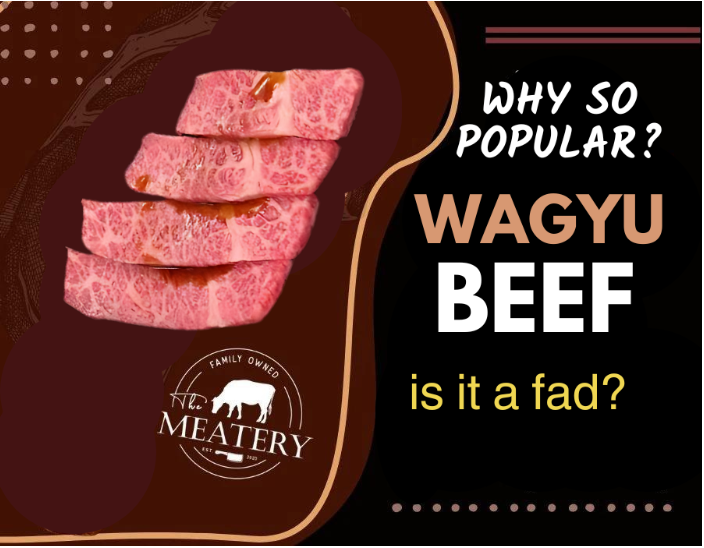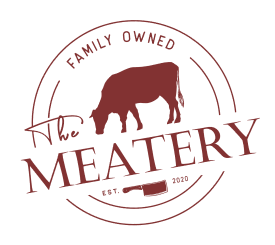Wagyu beef has taken the culinary world by storm. Renowned for its melt-in-your- mouth texture, rich flavor, and extravagant marbling, it's become a symbol of luxury dining. But what exactly makes Wagyu so special, and is its popularity here to stay? Let's delve into the world of Wagyu, exploring the reasons behind its rise and its potential staying power.
The Art and Science of Wagyu Production
Wagyu translates to "Japanese cattle," but it refers specifically to four breeds renowned for their exceptional meat quality: Japanese Black, Japanese Brown, Shorthorn, and their hybrids. The magic lies in the meticulous breeding practices and unique raising methods employed in Japan.
Beyond Marbling: The Wagyu Experience
While marbling is undoubtedly a key factor in Wagyu's appeal, it's not the whole story. Several other elements contribute to the exceptional Wagyu experience:
- Umami: Wagyu is rich in umami, the savory "fifth taste" highly prized in Japanese cuisine. This adds depth and complexity to the flavor profile, creating a truly satisfying culinary encounter.
- Tenderness: The careful breeding and raising methods result in incredibly tender meat. The fat is finely dispersed throughout the muscle fibers, creating a melt-in-your-mouth sensation with every bite.
- Flavor Nuances: Depending on the specific breed, region, and raising techniques, Wagyu can exhibit subtle variations in flavor. Some boast a buttery richness, while others offer a hint of sweetness or nuttiness.
A Deep Dive into the Wagyu Grading System
The Japanese government enforces a strict grading system to ensure consistency and quality. This system takes into account two factors:
- Yield Grade (YMS): This measures the amount of usable meat on the carcass. A higher YMS indicates a more generous meat-to-bone ratio.
- Beef Marbling Score (BMS): This evaluates the intramuscular fat content. A higher BMS score signifies more marbling.
The combination of YMS and BMS determines the overall Wagyu grade, ranging from A5 (the highest) to C1 (the lowest). A5 Wagyu is considered the pinnacle, boasting exceptional marbling and tenderness. However, even Wagyu with a lower grade can be a delightful culinary experience.
The Wagyu Journey: From Farm to Table
The journey of Wagyu beef, from farm to table, is a fascinating one:
- Meticulous Breeding: Strict breeding programs ensure the best possible genetic traits are passed down. Pedigree tracking and performance evaluation are crucial components.
- Nurturing Environment: Wagyu cattle are typically raised in comfortable, stress-free environments. Some farms even play classical music or provide gentle massages to promote relaxation and marbling development.
- Specialized Diet: The diet of Wagyu cattle is carefully formulated to encourage marbling. Traditionally, rice straw, wheat, and other nutrient-rich grains are included.
- Expert Butchery: The butchering process plays a vital role in preserving the quality of Wagyu. Skilled butchers ensure optimal cuts and preparation for the final dining experience.
The Global Reach of Wagyu
While authentic Japanese Wagyu remains a premium product due to its stringent production standards, the Wagyu phenomenon has reached a global scale:
- Wagyu-Cross Cattle: Breeders in other countries, like Australia and the United States, are crossing Wagyu cattle with local breeds. This results in Wagyu-influenced beef that offers a more accessible price point while retaining some of the marbling and flavor characteristics.
- Wagyu-Inspired Dishes: Chefs worldwide are experimenting with Wagyu, incorporating it into creative dishes beyond the traditional steak. Wagyu burgers, tacos, and even Wagyu-infused sauces are becoming increasingly popular.
- Educational Opportunities: Wagyu appreciation societies and culinary events are fostering a deeper understanding of Wagyu's unique qualities and the artistry behind its production.
The Ethical Considerations of Wagyu Consumption
As with any premium food product, ethical considerations surrounding Wagyu production are crucial. Here are some key points to consider:
- Animal Welfare: Responsible Wagyu producers prioritize the well-being of their cattle. Factors like comfortable housing, access to clean water, and humane treatment are essential.
- Environmental Impact: Sustainable farming practices that minimize environmental impact are becoming increasingly important. Responsible water and resource management are crucial aspects of ethical Wagyu production.
- Transparency in Sourcing: Consumers have a right to know the origin and farming practices behind the Wagyu they purchase. Reputable vendors should be transparent about their sourcing and commitment to ethical production.
Wagyu Beyond the Hype: A Celebration of Culinary Craft
While the high price tag and social media craze surrounding Wagyu might seem like a fad, there's more to this prized beef than meets the eye. It's a culmination of tradition, meticulous breeding, and a focus on creating a truly exceptional culinary experience.
The Art of Cooking Wagyu
Cooking Wagyu requires a slightly different approach compared to other cuts of beef. Here are some tips to unlock its full potential:
- High Heat, Short Cook Time: Due to the high fat content, Wagyu benefits from high heat cooking methods like searing or grilling. This quickly renders the fat, creating a flavorful crust while keeping the interior beautifully tender and juicy. Conversely, long cooking methods can melt away too much fat, compromising the texture and flavor.
- Simplicity is Key: Wagyu's inherent richness shines best when allowed to speak for itself. Opt for simple preparations that highlight the natural flavors and avoid overpowering sauces or marinades. A sprinkle of high-quality sea salt and a touch of freshly ground black pepper can be all that's needed.
- The Perfect Sear: While searing is crucial, achieving a beautiful crust without overcooking the interior requires some finesse. Preheat your pan or grill to high heat. Pat your Wagyu dry to ensure even browning. Sear each side for a short time, just until a flavorful crust forms. Use a meat thermometer to monitor internal temperature and remove the steak from heat when it reaches your desired level of doneness (medium-rare is highly recommended for Wagyu).
Wagyu Pairing Perfection
Choosing the right accompaniments can elevate your Wagyu experience even further:
- Wine Pairings: Bold reds like Cabernet Sauvignon or Syrah can stand up to the richness of Wagyu. However, some prefer lighter-bodied Pinot Noirs or even a chilled Beaujolais to complement the delicate flavors.
- Vegetables: Asparagus, grilled mushrooms, or a simple salad with a light vinaigrette are excellent accompaniments. Opt for vegetables that won't overpower the Wagyu but provide a refreshing contrast.
- Starches: Mashed potatoes, roasted potatoes, or even a light risotto can be excellent choices. Avoid starchy sides that might compete with the Wagyu for center stage.
Beyond the Steak: Exploring Wagyu Cuts
While Wagyu steaks are the most popular cut, other options offer exciting culinary possibilities:
- Wagyu Ribeye: Renowned for its intense marbling and buttery richness.
- Wagyu Filet Mignon: Exceptionally tender with a delicate flavor profile.
- Wagyu Ground Beef: Perfect for luxurious burgers that are juicy and bursting with flavor.
- Wagyu Shabu Shabu: Thinly sliced Wagyu for a Japanese hot pot experience, where the meat cooks quickly in a flavorful broth.
- Wagyu Yakiniku: Thinly sliced Wagyu cooked on a tabletop grill, a popular Japanese barbecue style.
The Future of Wagyu: Innovation and Sustainability
The future of Wagyu is likely to be shaped by innovation and sustainability:
- Genetic Advancements: Breeders are constantly researching ways to further optimize the Wagyu cattle genome for superior marbling and flavor without compromising animal welfare.
- Alternative Wagyu Sources: Cellular agriculture and lab-grown Wagyu are emerging possibilities that could offer a more sustainable and accessible option in the future.
- Focus on Ethical Production: Consumer demand for ethically sourced Wagyu is likely to rise. Producers who prioritize animal welfare and environmental responsibility will be at the forefront of the industry.
Conclusion: A Wagyu Journey Worth Taking
Wagyu is more than just a trendy steak. It's a culmination of tradition, meticulous breeding practices, and a dedication to creating a unique and luxurious culinary experience. Understanding the journey of Wagyu cattle, from farm to table, and appreciating the artistry behind its production enhances the enjoyment of this exceptional beef. While Wagyu may not be an everyday indulgence, it's a journey worth taking for any true food lover seeking to explore the pinnacle of taste and texture.
Experience the Difference with Themeatery.com
At Themeatery.com, we are passionate about providing our customers with the finest quality Wagyu beef. We source our Wagyu from reputable producers who prioritize ethical and sustainable practices. Whether you're a seasoned Wagyu connoisseur or curious to experience it for the first time, we offer a curated selection of Wagyu cuts to suit your preferences. Explore our Wagyu collection today and embark on your own Wagyu adventure. Themeatery.com - Where exceptional taste meets informed sourcing.









